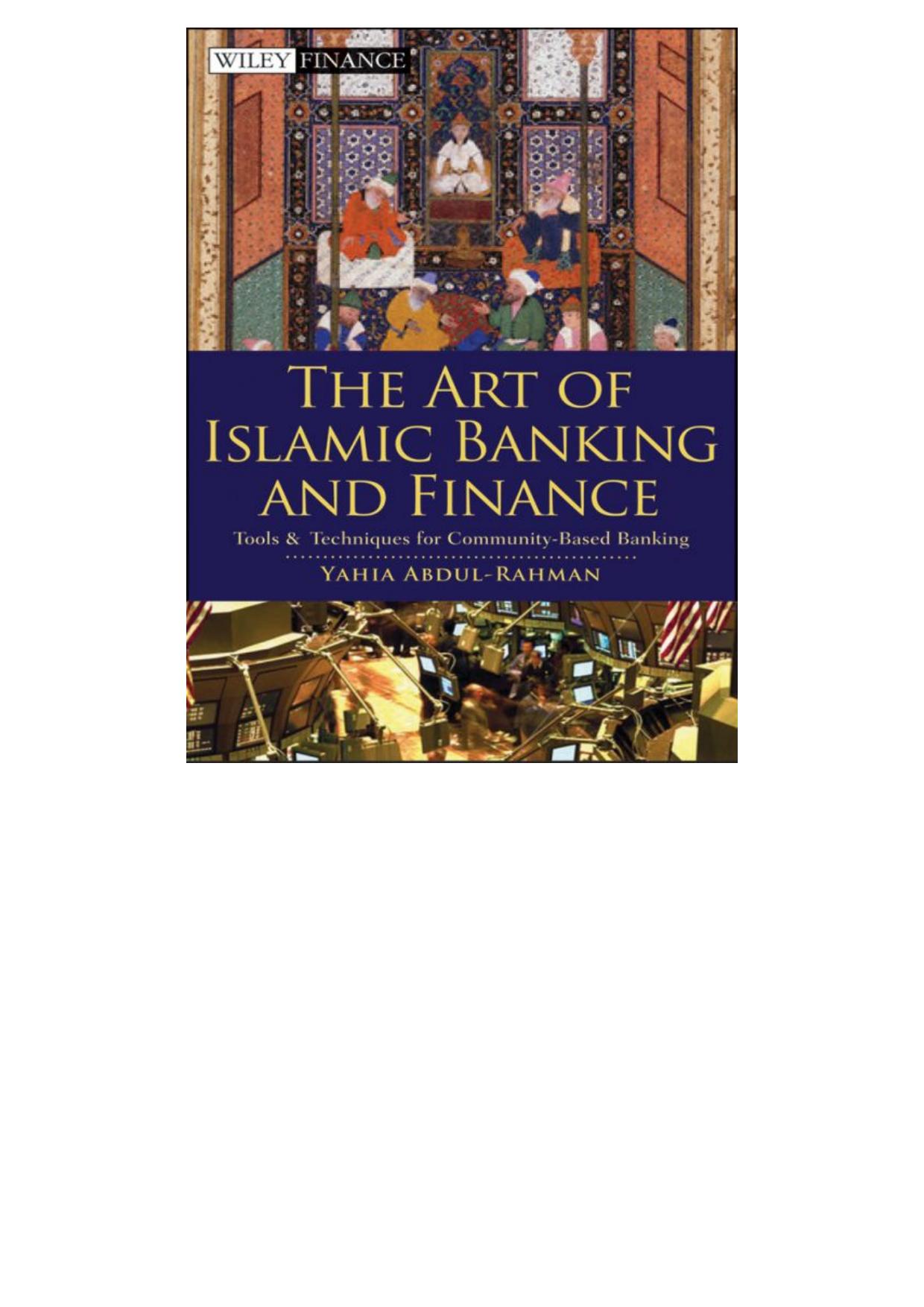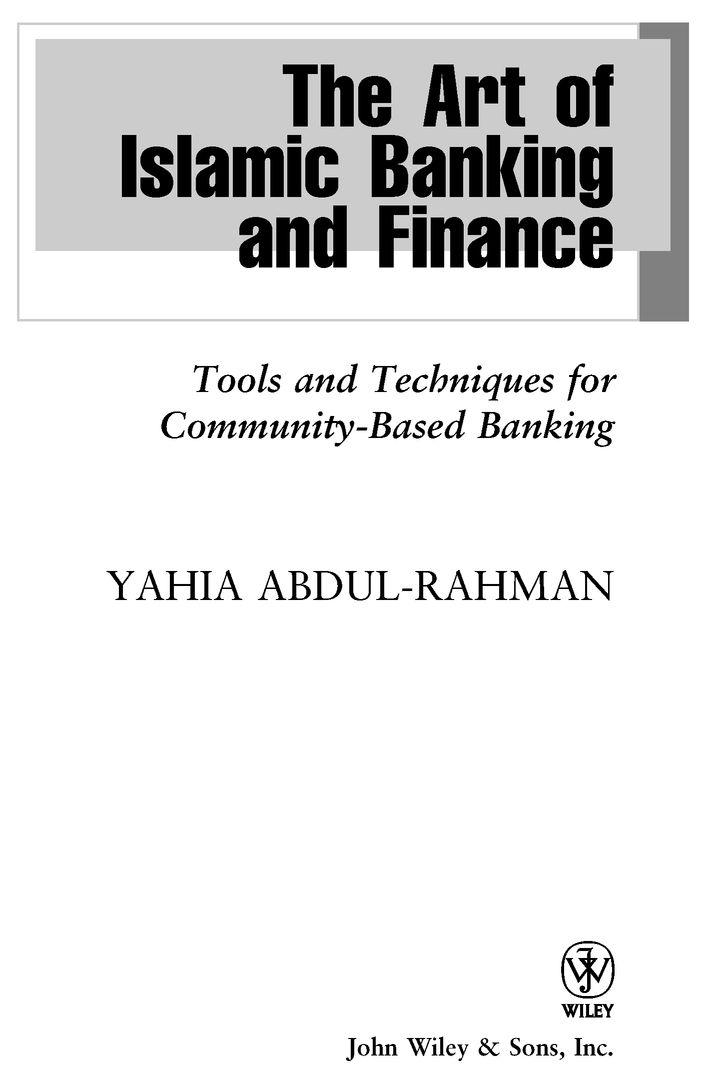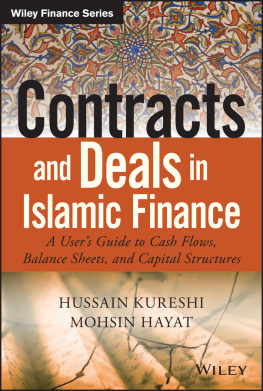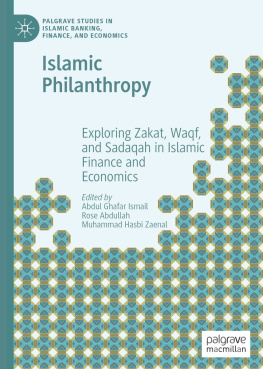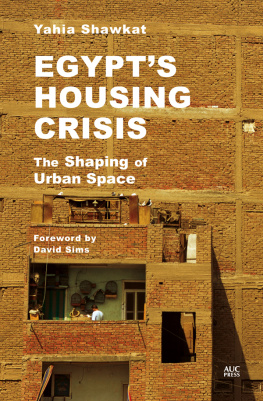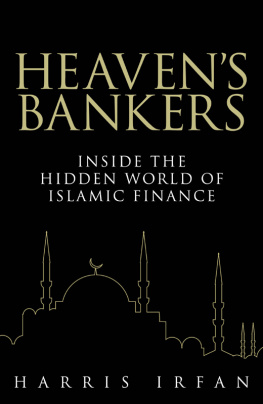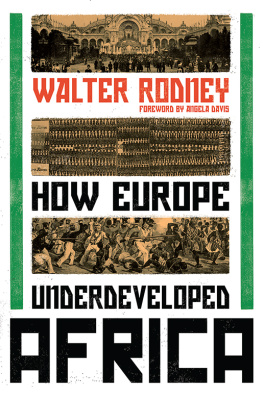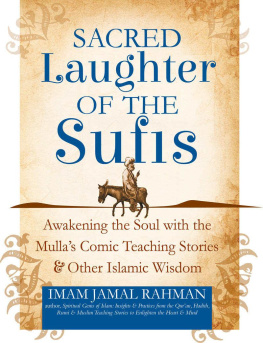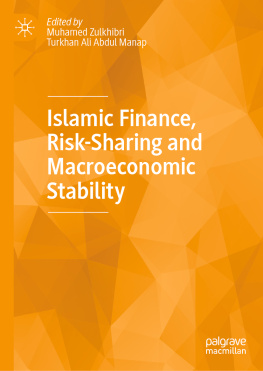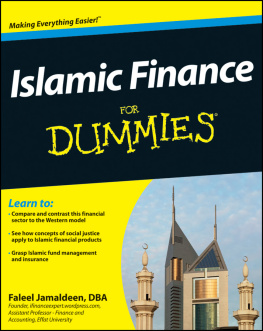Table of Contents
Founded in 1807, John Wiley & Sons is the oldest independent publishing company in the United States. With offices in North America, Europe, Australia, and Asia, Wiley is globally committed to developing and marketing print and electronic products and services for our customers professional and personal knowledge and understanding.
The Wiley Finance series contains books written specifically for finance and investment professionals as well as sophisticated individual investors and their financial advisors. Book topics range from portfolio management to e-commerce, risk management, financial engineering, valuation, and financial instrument analysis, as well as much more.
For a list of available titles, please visit our Web site at www.WileyFinance.com.
Copyright 2010 by Yahia Abdul-Rahman. All rights reserved.
Published by John Wiley & Sons, Inc., Hoboken, New Jersey.
Published simultaneously in Canada.
No part of this publication may be reproduced, stored in a retrieval system, or transmitted in any form or by any means, electronic, mechanical, photocopying, recording, scanning, or otherwise, except as permitted under Section 107 or 108 of the 1976 United States Copyright Act, without either the prior written permission of the Publisher, or authorization through payment of the appropriate per-copy fee to the Copyright Clearance Center, Inc., 222 Rosewood Drive, Danvers, MA 01923, (978) 750-8400, via fax at (978) 750-4470, or on the Web at www.copyright.com. Requests to the Publisher for permission should be addressed to the Permissions Department, John Wiley & Sons, Inc., 111 River Street, Hoboken, NJ 07030, (201) 748-6011, via fax at (201) 748-6008, or online at www.wiley.com/go/permissions.
Limit of Liability/Disclaimer of Warranty: While the publisher and author have used their best efforts in preparing this book, they make no representations or warranties with respect to the accuracy or completeness of the contents of this book and specifically disclaim any implied warranties of merchantability or fitness for a particular purpose. No warranty may be created or extended by sales representatives or written sales materials. The advice and strategies contained herein may not be suitable for your situation. You should consult with a professional where appropriate. Neither the publisher nor author shall be liable for any loss of profit or any other commercial damages, including but not limited to special, incidental, consequential, or other damages.
For general information on our other products and services or for technical support, please contact our Customer Care Department within the United States at (800) 762-2974, outside the United States at (317) 572-3993, or via fax (317) 572-4002.
Wiley also publishes its books in a variety of electronic formats. Some content that appears in print may not be available in electronic books. For more information about Wiley products, visit our Web site at www.wiley.com.
Library of Congress Cataloging-in-Publication Data:
Abdul-Rahman, Yahia, 1944-
The art of Islamic finance and banking : tools and techniques for community-based banking / Yahia Abdul-Rahman.
p. cm. - (Wiley finance; 504)
Includes index.
eISBN : 978-0-470-57263-4
1. Banks and banking-Islamic countries. 2. Banks and banking-Religious aspects-Islam. 3. Finance-Islamic countries. 4. Finance-Religious aspects-Islam. I. Title.
HG3368.A6A244 2010
332.1091767-dc22
2009028344
PREFACE
My Story With Islamic Banking and Finance in America
I came to the United States on my own from Egypt to study for my MS and PhD degrees at the University of Wisconsin, Madison in 1968. I had essentially nothing except my BS degree in Chemical Engineering from Cairo University and a letter from the University of Wisconsin, Madison accepting me as an International Special Student on a trial basis. I did not have the funds to pay for tuition nor for accommodations, books, and other expenses. It was a big challenge for me, but I made it, through hard work, to where I am today managing a pioneering effort in America to establish what I consider a revival of the banking system that built America. Using a platform we call the LARIBA system (www.LARIBA.com), we offer socially responsible, faith-based, and riba-free banking. Throughout this book, I will abbreviate it as RF banking.
In 1987, a group of dedicated friends invested $10,000 each to start a small company we called American Finance House LARIBA. We gathered $200,000 as the startup capital. To my knowledge, this was the first time ever a group of Muslims had bonded together to start a joint project that would eventually become an important force in the American Muslim community and in many non-Muslim communities. Our goal was to start a finance company that would operate without the charging of interest and according to the foundations of Islamic law (Shariaa). Today, in 2009, and after 22 years the LARIBA shareholders own LARIBA (www.LARIBA.com), the oldest Islamic RF finance company in the United States, and the Bank of Whittier (www.BankOfWhittier.com), a national bank. The LARIBA System (the finance company LARIBA and the Bank of Whittier, NA) serves all 50 states in America and services a portfolio of riba-free shariaacompliant financing that is worth approximately $400 million. The portfolio includes home mortgages, automobiles, fast food franchises, medical doctors clinics, dialysis centers, commercial buildings, schools, churches, and Islamic centers. It was, and continues to be, a wonderful journey.
This book is a strong effort to introduce this new brand of banking, which is based on the Judeo-Christian-Islamic value system while upholding the laws of America.
I must acknowledge that, after traveling the world over and doing business in many nations, I concluded that only in the United States can a new immigrant realize his/her dreams, even with a new idea that might have looked unbelievably outrageous at the time. I am deeply indebted to Almighty God, who created the reasons for me to come to America, start a family, and live here. I am thankful to my fellow Americans of all faiths and backgrounds for making our country, the United States of America, what it is. It is unfortunate that America is viewed internationally through the lens of Hollywood movies and the sometimes controversial aspects of our foreign policy. It is unfortunate that the wonderful average American neighbor, colleague, farmer, worker, professional, student, and volunteer do not get a chance to be fully and fairly represented and exposed to the United States and the rest of the world.
My feeling as a Muslim moving to live in the United States was one of curiosity. Moving to America changed my social standing and grouping; I went from a majority Muslim country to being a member of the Muslim minority in the United States, which was an unknown minority belonging to an unknown religion at that time. Reflecting on it, I concluded that God in His infinite wisdom wanted us Muslims in the United States to experience living as a minority. If we were wise, we, the Muslims, would learn from this golden opportunity and better understand how to deal with non-Muslim minorities in the Muslim majority countries. At the same time, we might be able to further enrich a country that wasafter allbuilt by successive waves of immigrants, each bringing something new to the broader culture of the nation. Being a member of the small Muslim minority created an interesting basic feeling, an instinct and need to discover ones roots and to define whom one really is. That was the beginning of our journey, my wife and I, in the service of Islam in America in the form of serving the Muslim community and the integration of Islam and the American Muslim community to make them part of the unique American mosaic through interfaith and civic activities.

